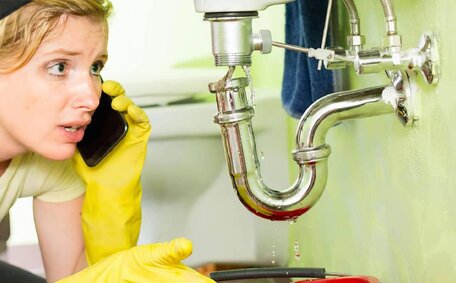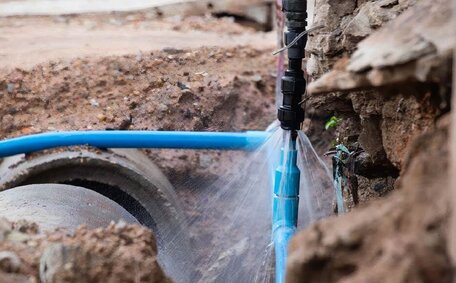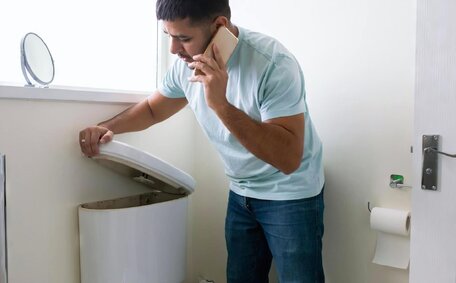Overview of Gas Appliance Installation
Installing gas stoves, cooktops, or water heaters can boost cooking efficiency, regulate temperature, and lower energy costs. Due to the high risks associated with gas, professional installation is mandated for safety and legal compliance.
DIY gas installations are prohibited for good reason, including what might seem like a straightforward task such as replacing an old gas cooker:
- Experts confirm that improperly installed gas stoves can lead to fires, explosions, and carbon monoxide poisoning.
- Mistakes in gas work will likely void your home and contents insurance if damage occurs.
- Property owners carry legal liability if gas installations are done by unqualified individuals.
Key steps in installing a new gas appliance include:
- Choose an appliance, like a new stove, that suits your kitchen’s needs and obtain council approval for installation.
- Ensure adequate gas supply with the right pressure and ventilation for reliable gas oven installation.
- Engage a licenced gas plumber who can install gas appliances and ensure safety.
- The licensed technician will install and meticulously test your gas stove, prioritising your kitchen’s requirements and safety.
- The gas fitter certifies the safe completion of installing new gas appliances.
Skipping any of these essential safeguards risks injury, death, legal problems, and insurance issues, which a professional gas oven installation can help mitigate. Choosing a licensed gas fitter is both smart and legally required, ensuring the installation is conducted safely for long-term enjoyment of your new gas appliance.
Safety Risks and Dangers of DIY Gas Installations
Installing or servicing gas appliances without appropriate training and licensing poses significant safety risks.
Key dangers of DIY gas work include:
- Gas leaks leading to fire/explosion risks. Even minor leaks are extremely hazardous.
- Incorrect appliance connections resulting in carbon monoxide poisoning.
- Faulty appliance setup causing gas appliance malfunctions.
- Lack of testing for leaks which allows dangerous issues to go undetected.
Without the right tools, parts, materials, and gas safety knowledge, installations can quickly become complex and prone to mishandling by non-professionals. For example:
- The errors often include the use of inadequate or unsuitable parts such as faulty gas pipe and connectors.
- Failing to test pressure and ventilation.
- Failing to achieve a hermetic seal on your gas stove connections.
- Connecting a gas range with an incompatible gas type.
Tasks that appear simple, such as cooktop installation, require safely disconnecting, capping, and reconnecting gas lines. Lacking specific skills, you might seek assistance from a plumber who can adeptly install your new cooktop and correct hazardous errors.
Legally, only licenced gas technicians may execute residential and commercial natural gas fitting. Licensed professionals maintain safety standards and are accustomed to the nuances of various gas cooktop models. Attempting gas installations yourself disregards safety measures that licenced professionals make sure to uphold.
Hiring a Licensed Professional for Gas Appliance Installation
Engaging a licensed professional is crucial for the installation or servicing of a gas appliance. Attempting a DIY gas installation risks serious hazards like gas leaks, carbon monoxide poisoning and even explosions. That’s why the law requires gas work to be done by qualified technicians.
At Northmead Plumbing, Our licensed gas fitters are extensively trained and experienced in installing a wide range of gas appliances. We follow strict safety protocols and use industry-approved materials and fittings. Our gas technicians will:
- Assess your gas supply and appliance requirements
- Obtain any necessary council permits
- Safely disconnect and cap old gas lines and adeptly connect gas cookers
- Connect gas cookers and new gas appliances and perform leak tests
- Ensure proper ventilation and pressure
- Certify gas compliance upon completion
Northmead Plumbing ensures new gas appliances are installed correctly and safely, offering you peace of mind. We want to keep you and your family protected. Avoid the risks of DIY gas work - contact us today to book a professional gas appliance installation.
Required Permits and Certification for Gas Appliance Installation
Permits and certification are required in Sydney for the installation of gas appliances or modification of existing gas systems, to comply with safety regulations. This critical paperwork must be completed by qualified gas professionals.
Key permits and paperwork required include:
- Development approval from local council
- Construction certificate for building work
- Occupation certificate upon completion
- Tradesperson licences for gasfitting contractors
- Certificate of compliance when job is finished
Certificates of compliance demonstrate that a licenced technician has installed and tested the gas appliance or system to Australian Standards. This gas certification will be required when selling a property, for insurance claims and provides peace of mind that work was done safely.
At Northmead Plumbing, our experienced gas fitters obtain all necessary council permits and complete the required certification paperwork on your behalf for every gas job. We want to save you the hassle while ensuring full legal compliance.
Don’t risk fines, insurance problems and safety hazards - always use properly licenced tradespeople like Northmead Plumbing for gas appliance installations in your Northmead home or business.
Step-by-Step Process for Installing a Gas Appliance
Safety must be the top priority with gas appliance installations. While DIY gas oven installation is prohibited, understanding the general process will help you know what to expect when leaving it to the professionals.
Here is an overview of the key steps involved in properly installing a gas appliance:
- The gas fitter will verify your gas and electricity supplies and evaluate the area for stove installation.
- They will discuss your new gas cooktop specifications and installation options.
- The gas fitter secures the required permits and council approvals.
- They will safely disconnect and seal the old gas line, making way to set up gas connections for your new stove.
- Your new stove will be carefully installed and anchored securely in place.
- Gas lines will be installed and connected to the appliance using proper fittings.
- Exhaust flues or ducting will be installed if required.
- The gas fitter will thoroughly test all connections for leaks using leak detection fluid.
- The system pressure and appliance function will also be rigorously tested.
- Ventilation adequacy will be confirmed to prevent build up of fumes.
- Upon completion, the gas fitter will issue a Certificate of Compliance, validating the safe and proper installation.
Although the process differs with each appliance, entrusting a qualified technician like Northmead Plumbing guarantees an installation that meets the highest safety benchmarks.
Connecting Gas Lines and Fittings
It’s critical to ensure that gas lines and fittings are properly connected when setting up your oven, to prevent safety hazards. Gas line connections must form an airtight seal to prevent dangerous leaks. This requires precision tools and experience.
Licensed gas plumbers follow precise procedures to secure each gas port connection:
- End connectors are meticulously prepared to ensure firm and leak-proof joints.
- Teflon tape is applied with care to threaded pipe fittings, creating an effective seal against leaks.
- Swaged fittings use pressure to form a tight joint between the tubing and fittings.
- Flared fittings are compressed against tapered tubing ends for a tight seal.
- Compression fittings squeeze gaskets between the pipe and couplings.
The gas fitter will check for leaks at every stage, using soapy water to identify any issues. They will also adjust appliance valves and regulators to ensure correct gas flow and pressure.
DIY attempts at installing gas oven connections can lead to issues like loose fittings and leaks. It’s best to hire a licensed professional like Northmead Plumbing for safe and secure connections.
Installing Vents and Exhaust Pipes
Ensuring proper ventilation is essential for the safety of gas hot water appliances, as they need vents to expel harmful exhaust gases like carbon monoxide.
There are two main types of vents:
- Direct venting efficiently expels exhaust straight to the outdoors, a practise typical for units like gas heater and furnaces.
- Recirculating vents, used in cooktops and ovens, filter the exhaust before it’s reintroduced into the space.
A licenced gas fitter will assess your appliance and install the approved type of venting:
- Vent materials like metal ducting must meet strict specifications to handle exhaust.
- Vents require precise sizing and slope to ensure proper airflow.
- Joints must be properly sealed to prevent leakage.
- External vents need weatherproof and rodent-proof terminations.
Professionals ensure there is sufficient draft for proper ventilation, as inadequate DIY venting may lead to dangerous leaks or insufficient exhaust extraction.
Trust Northmead Plumbing’s experts to safely install required vents and exhaust systems when installing your new gas appliance.
Thitters use several methods to check for leaks: - Pressure testing involves sealing up newly installed gas lines and appliances, pressurising the system with an inert gas like nitrogen, and using gauges to check for pressure drops that indicate leaks.
- Bubble solution testing is done by applying a soapy water solution to all joints and connections. Bubbles forming show escaping gas.
- Electronic gas detectors use sensors to sniff out methane or propane gas leaks.
This procedure happens before the appliances are activated, ensuring any gas leak under pressure is discovered promptly. A diligent gas fitter will verify multiple times that all fittings have no leaks or issues.
Missed leaks from poor DIY testing can allow dangerous gas accumulation. Northmead Plumbing’s technicians perform rigorous leak checks to keep your gas appliances safe.
Obtaining a Gas Safety Inspection Certificate
After a gas appliance installation is complete, it is crucial to obtain a gas safety inspection certificate. This certificate demonstrates that the gas installation has been inspected and tested by a licenced professional and deemed compliant with all safety regulations.
There are several key reasons obtaining proper gas certification is essential:
- It is a legal requirement under gas fitting regulations in Australia.
- It provides proof that the installation is safe for insurance purposes.
- It shows gas work was conducted by a qualified professional.
- It is often required when selling a property with new gas appliances.
- It gives you peace of mind about the safety of your gas appliances.
When our technicians at Northmead Plumbing complete a new gas installation, we handle all aspects of the certification process including:
- Conducting extensive leak tests.
- Checking gas line pressure and appliance combustion.
- Issuing a Certificate of Compliance.
- Providing copies for insurance and council requirements.
Don’t jeopardise the safety of your home and family by attempting DIY gas work. Our licenced gas fitters can expertly install your new gas appliance and provide the proper certification.
Contact Northmead Plumbing today to arrange your gas ovens installation and certification.
Maintenance and Servicing of Gas Appliances
For gas appliances to remain safe and efficient throughout their lifespan, regular professional maintenance is imperative. Licenced gas fitters recommend heater service for gas appliances every 2 years as a minimum. More frequent servicing may be required for older or heavily used appliances.
Technicians will carefully inspect gas lines and fittings for any leaks or damage during service using leak detection fluid and electronic gas detectors. They will also clean burner ports, adjust flame conditions, check ignition systems, inspect ventilation and flues, and confirm gas pressures meet specifications.
Servicing that includes replacing worn components such as thermocouples, igniters, and regulators helps prevent future appliance malfunctions. Compliance certificates are issued to verify gas safety after each service.
Neglect of maintenance increases the risk of gas leaks, carbon monoxide exposure, and fires. Don’t wait for issues to occur - be proactive. Northmead Plumbing provides reliable servicing for gas appliances; contact us to address your maintenance needs.






